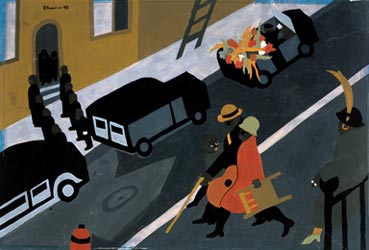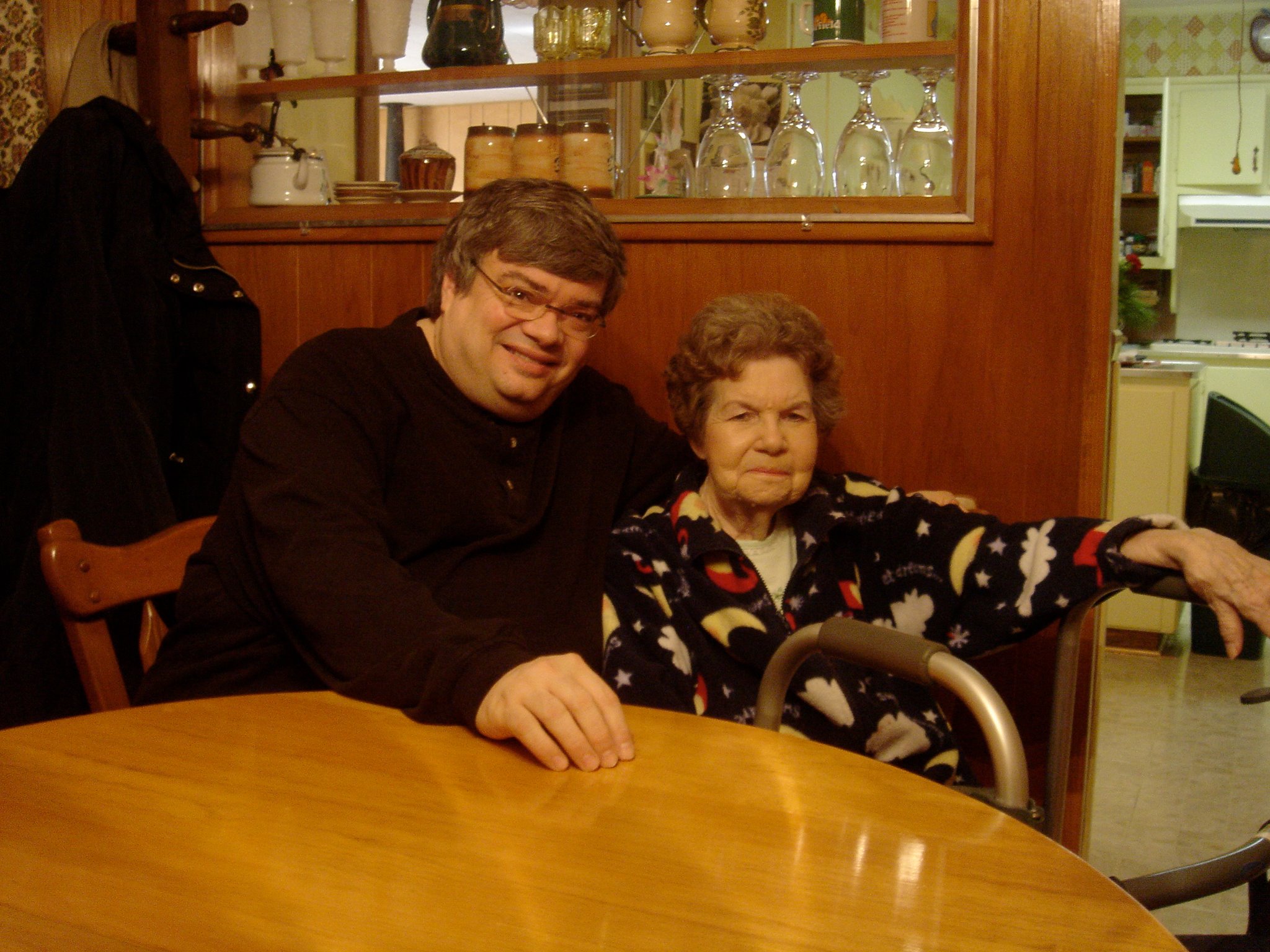The next three days were hectic, but also familiar. My brother and I had buried my father, so we knew the routine. We went to the funeral home first thing in the morning to pick out a casket. My sister-in-law went through my mother’s closet and found the clothes in which she would be buried. I drove to the cemetery to arrange for her grave to be dug, got my hair cut and bought a new shirt and tie, then went back to the house to choose three songs to be played at the funeral on Wednesday.
My brother had already decided on the scripture that the minister would read, the Twenty-Third Psalm and the first eight verses of the third chapter of the Book of Ecclesiastes, the passage that begins To every thing there is a season, and a time to every purpose under the heaven. They were my mother’s favorites–she had marked them in her well-thumbed Bible–and none of us doubted that he had chosen wisely and well. The songs, somewhat to my surprise, were just as easy to choose. It took no more than a few minutes for me to settle on Aaron Copland’s sweetly austere version of At the River, the Monroe Brothers’ What Would You Give in Exchange for Your Soul, and a recording of Skylark by my old friend Nancy LaMott, at whose deathbed I had also been present sixteen years earlier. I liked the idea of hearing Nancy’s voice at my mother’s funeral, and even though “Skylark” is a love song, not a hymn, Johnny Mercer’s tender lyric seemed to me appropriate to the occasion: “In your lonely flight/Haven’t you heard the music of the night?”
Listening to the songs on my laptop, I began at last to sob uncontrollably. The sound of music had unlocked my heart. My wife put her arms around me. “I think maybe you’d better listen to those records a couple more times if you want to get through the funeral in one piece,” she said.
“I think you’re right,” I replied.
 The list of necessary errands kept growing longer–it always does–but everything got done. Come Tuesday night we went back to the funeral home an hour before visitation was to begin. We had decided on Sunday that the casket would be closed to all but the immediate family. Even in the nursing home, my mother had always been meticulous about her appearance, and we knew that she wouldn’t have wanted any of her friends to see her looking the way she did in the last weeks of her life.
The list of necessary errands kept growing longer–it always does–but everything got done. Come Tuesday night we went back to the funeral home an hour before visitation was to begin. We had decided on Sunday that the casket would be closed to all but the immediate family. Even in the nursing home, my mother had always been meticulous about her appearance, and we knew that she wouldn’t have wanted any of her friends to see her looking the way she did in the last weeks of her life.
My own convictions on the matter were long settled. After reading The Loved One and The American Way of Death in high school, I’d decided that the “viewing” of a rouged corpse was a barbarous ritual, a belief hardened in adulthood by the way in which my father’s body was rendered unsightly beyond the possibility of repair by the rare skin cancer that killed him. Thus it astonished me when I entered the chapel, walked straight to the still-open casket, and saw that the undertaker, a kindly and unselfconsciously genial man who took his work with the utmost seriousness, had somehow contrived to erase all the brutal marks of suffering from my mother’s calm, ungarish face.
Everyone fell silent. “I think it would be all right to leave it open,” said Albert, my mother’s older brother. I heard an approving murmur from the rest of the family. Once more my brother and I looked at one another and saw that we were in unspoken agreement. “I think so, too,” I said, and again he nodded. It was the last thing I had ever expected to say, but I was taken aback by the rush of comfort that I felt at the sight of the familiar face that had been so carefully and sensitively restored, and I thought it right for others to feel it as well.
I touched her hand, then leaned over to kiss her forehead one last time. On Sunday it had been warm, but now it felt like a slab of marble. How could anyone who looked so alive be so chilly and still?
Soon the chapel was full. I knew that my mother had been greatly loved, but it still surprised me that so many mourners turned out that evening, and I spent the next few hours hugging people whom I hadn’t seen for years. Many of them came back the following afternoon for the funeral ceremony, and most of the ones who did accompanied us to the cemetery, where my mother’s minister, who had already spoken movingly of her goodness, said a few more words over her flower-covered casket. Then the family drove to the church, where a potluck supper awaited us.
It was the first time I’d eaten such a meal since the night that I dined on baked ham and hashbrown casserole in the fellowship hall of the small-town church where a young friend of mine had just gotten married. I thought of what I’d written about her wedding the next day:
I sat down again to watch my beloved friend embark on her new life. She looked flushed and radiant and determined, and I, perhaps not surprisingly, found myself tugged between hope for her future and curiosity about my own. The time between Thanksgiving and Christmas is uncomfortable for me at best, and I’d been at loose emotional ends for the past couple of weeks….Now I was sitting in a place redolent of my long-ago youth, at once utterly alien and utterly familiar, feeling not unlike the Marschallin in Der Rosenkavalier, who wandered through her palace at midnight, stopping all the clocks, trying to turn her back on time.
Like time itself, all things must pass, and just as my friend’s marriage came apart a few years later, so had my mother’s long, mostly happy life reached its sad and painful end. Yet here we all were, joking and laughing and eating hashbrown casserole in the fellowship hall of yet another small-town church. The clocks had started again.
* * *
Two days later my wife and I were back in New York, and two days after that we flew to California to spend a couple of weeks seeing shows. I wondered how long it would be before I set foot in Smalltown again, and how much time would go by before my mother’s death felt fully real to me.
 The following week we drove down Highway 1 from Santa Barbara to Los Angeles, passing by a seemingly endless string of strip malls. I’ve never seen a place as rootless as this, I thought.
The following week we drove down Highway 1 from Santa Barbara to Los Angeles, passing by a seemingly endless string of strip malls. I’ve never seen a place as rootless as this, I thought.
“You know how I feel today?” I asked my wife. “Empty. Absolutely empty. Like my taproot had been torn out of the ground.”
“I think I know what you mean,” she said, reaching out to squeeze my arm.
(Last of three parts)
